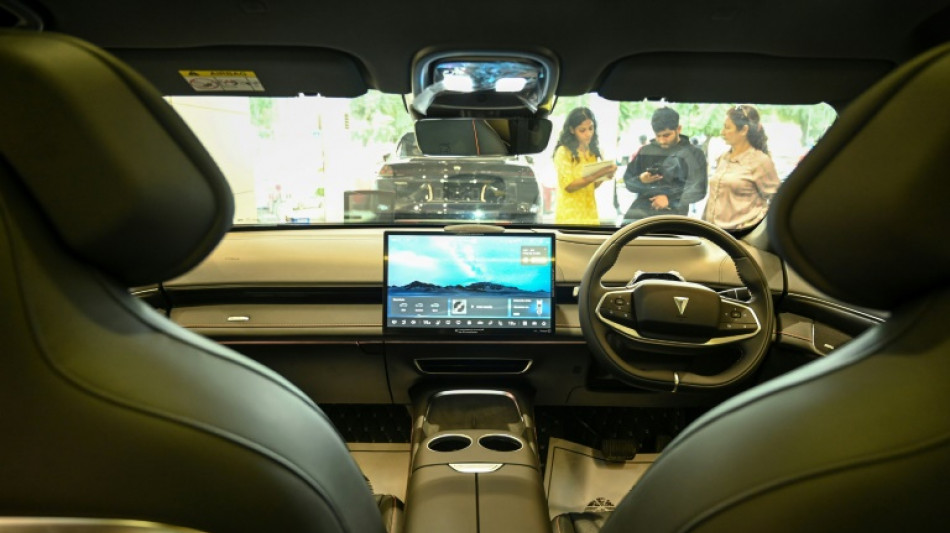
-
 Rodgers misery as Texans rout Steelers to advance in NFL playoffs
Rodgers misery as Texans rout Steelers to advance in NFL playoffs
-
Morocco's Bono 'one of best goalkeepers in the world'

-
 Salah and Mane meet again with AFCON final place on the line
Salah and Mane meet again with AFCON final place on the line
-
French museum fare hikes for non-European tourists spark outcry
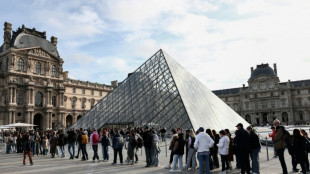
-
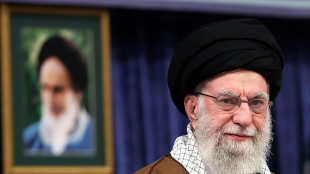 In 'big trouble'? The factors determining Iran's future
In 'big trouble'? The factors determining Iran's future
-
Osimhen finds AFCON scoring touch to give Nigeria cutting edge

-
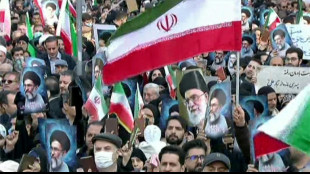 Trump announces tariffs on Iran trade partners as protest toll rises
Trump announces tariffs on Iran trade partners as protest toll rises
-
Sabalenka favourite at Australian Open but faces Swiatek, US threats

-
 Gay Australian footballer Cavallo alleges former club was homophobic
Gay Australian footballer Cavallo alleges former club was homophobic
-
Trump has options on Iran, but first must define goal
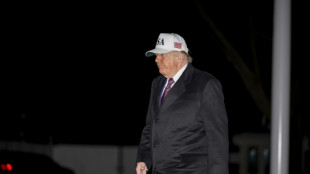
-
 Paris FC's Ikone stuns PSG to knock out former club from French Cup
Paris FC's Ikone stuns PSG to knock out former club from French Cup
-
Australia's ambassador to US leaving post, marked by Trump rift
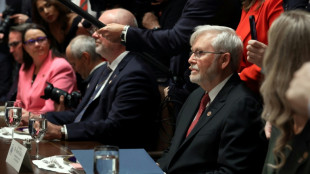
-
 Slot angered by 'weird' Szoboszlai error in Liverpool FA Cup win
Slot angered by 'weird' Szoboszlai error in Liverpool FA Cup win
-
Szoboszlai plays hero and villain in Liverpool's FA Cup win

-
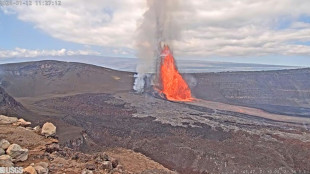 Hawaii's Kilauea volcano puts on spectacular lava display
Hawaii's Kilauea volcano puts on spectacular lava display
-
US stocks at records despite early losses on Fed independence angst
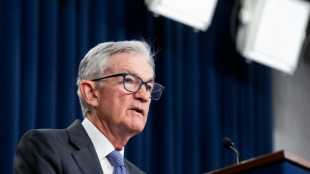
-
 Koepka rejoins PGA Tour under new rules for LIV players
Koepka rejoins PGA Tour under new rules for LIV players
-
Ex-France, Liverpool defender Sakho announces retirement

-
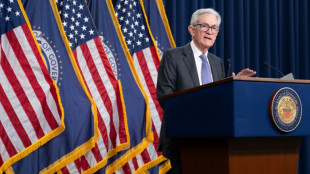 Jerome Powell: The careful Fed chair standing firm against Trump
Jerome Powell: The careful Fed chair standing firm against Trump
-
France scrum-half Le Garrec likely to miss start of Six Nations

-
 AI helps fuel new era of medical self-testing
AI helps fuel new era of medical self-testing
-
Leaders of Japan and South Korea meet as China flexes muscles
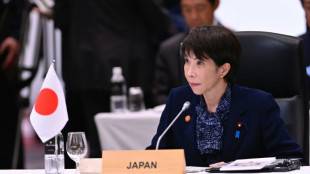
-
 Trump sets meeting with Venezuelan opposition leader, Caracas under pressure
Trump sets meeting with Venezuelan opposition leader, Caracas under pressure
-
Australia captain Alyssa Healy to retire from cricket

-
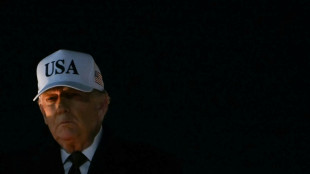 US 'screwed' if Supreme Court rules against tariffs: Trump
US 'screwed' if Supreme Court rules against tariffs: Trump
-
NATO, Greenland vow to boost Arctic security after Trump threats

-
 Israel to take part in first Eurovision semi-final on May 12
Israel to take part in first Eurovision semi-final on May 12
-
How Alonso's dream Real Madrid return crumbled so quickly

-
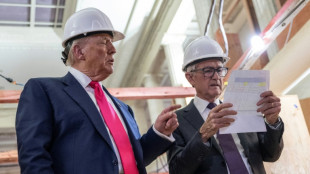 Ex-Fed chiefs, lawmakers slam US probe into Jerome Powell
Ex-Fed chiefs, lawmakers slam US probe into Jerome Powell
-
Former Panama leader on trial over mega Latin America corruption scandal
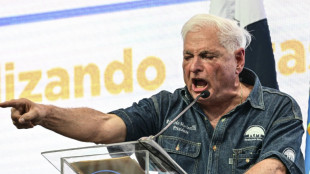
-
 Trump keeping Iran air strikes on the table: White House
Trump keeping Iran air strikes on the table: White House
-
Paramount sues in hostile bid to buy Warner Bros Discover

-
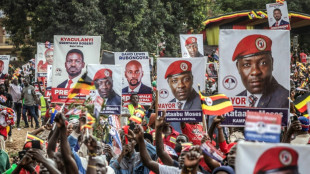 Ugandan opposition leader Bobi Wine warns of protests if polls rigged
Ugandan opposition leader Bobi Wine warns of protests if polls rigged
-
Airbus delivers more planes in 2025
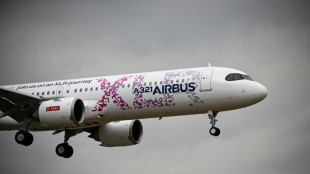
-
 Alonso leaves Real Madrid, Arbeloa appointed as coach
Alonso leaves Real Madrid, Arbeloa appointed as coach
-
UK pays 'substantial' compensation to Guantanamo inmate: lawyer
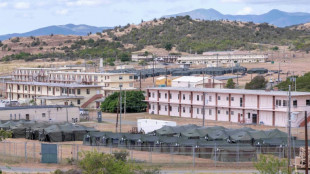
-
 Iran protest toll mounts as government stages mass rallies
Iran protest toll mounts as government stages mass rallies
-
Gold hits record high, dollar slides as US targets Fed
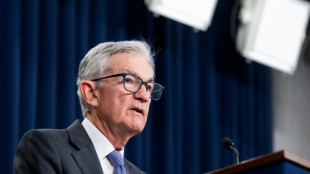
-
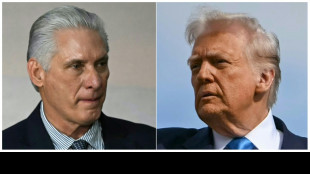 Cuba denies being in talks with Trump on potential deal
Cuba denies being in talks with Trump on potential deal
-
Scientists reveal what drives homosexual behaviour in primates

-
 Venezuela releases more political prisoners as pressure builds
Venezuela releases more political prisoners as pressure builds
-
15,000 NY nurses stage largest-ever strike over conditions

-
 Rosenior plots long Chelsea stay as Arsenal loom
Rosenior plots long Chelsea stay as Arsenal loom
-
Zuckerberg names banker, ex-Trump advisor as Meta president

-
 Reza Pahlavi: Iran's ex-crown prince dreaming of homecoming
Reza Pahlavi: Iran's ex-crown prince dreaming of homecoming
-
Venezuela releases more political prisoners

-
 Kenya's NY marathon champ Albert Korir gets drug suspension
Kenya's NY marathon champ Albert Korir gets drug suspension
-
US prosecutors open probe of Fed chief, escalating Trump-Powell clash
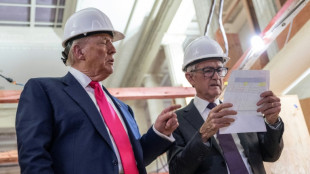
-
 Russian captain in fiery North Sea crash faces UK trial
Russian captain in fiery North Sea crash faces UK trial
-
Carrick is frontrunner for interim Man Utd job: reports


Nepal dam-building spree powers electric vehicle boom
Taxi driver Surendra Parajuli's decision to buy an electric cab would have been unthinkable a decade ago, when chronic power cuts left Nepalis unable to light their homes at night.
But a dam-building spree has led to dirt-cheap energy prices in a landlocked Himalayan republic otherwise entirely dependent on fossil fuel imports, meaning the switch has put more money in his pocket.
"It has meant huge savings for me," Parajuli, the proud new owner of a battery-powered and Chinese-made BYD Atto 3, told AFP in the capital Kathmandu.
"It gives 300 kilometres (186 miles) in a single charge and costs me a tenth of what petrol does. And it's environmentally friendly."
Kathmandu is ground zero of an incipient transport revolution set to see the clapped out cars that clog its traffic-snarled streets make way for emissions-free alternatives.
More than 40,000 electric vehicles are on the roads around the mountainous country, according to official estimates -- a small fraction of the 6.2 million motor vehicles currently in service.
But demand is insatiable: more than a quarter of those vehicles were imported in the 12 months to July, a near-threefold increase from the previous year.
Neighbouring China, now the dominant player in electric vehicles globally, is supplying nearly 70 percent of the market.
"EVs are genuinely suitable for Nepalis," Yajya Raj Bhatt, a prospective buyer at an electric vehicle motor show, told AFP.
"Before, we had to rely on petrol cars, but now we can drive independently."
- 'Great potential' -
More than four in five Nepalis did not have access to electricity at the turn of the century, according to the International Energy Agency.
But rapid investment in dams, which generate 99 percent of Nepal's baseload power, has transformed the energy grid since.
Hydropower output has increased fourfold in the past eight years, according to government figures, while 95 percent of the population now has access to electricity.
The country has already signed deals to export surplus power to coal-dependent India and has its sights set on future revenues by raising its current 3,200 megawatts of installed power generation capacity to 30,000 megawatts over the next decade.
Making electricity universal, and universally cheap, has the potential to jumpstart an economy that has historically depended on remittances from Nepalis working abroad.
Kulman Ghising of the Nepal Electricity Authority told AFP that the benefits have already been felt by setting the favourable conditions for widespread electric vehicle adoption.
Nepal is entirely dependent on imports from India to meet its fossil fuel needs, imposing additional costs on motorists, but Ghising said curbs on demand had saved the country around $224 million.
"The EVs have great potential for us," he added. "EVs in India and Bangladesh need to depend on coal, but in Nepal, it's fully green energy," he said.
Road transport accounts for just over five percent of greenhouse gas emissions and has fuelled a worsening air pollution crisis.
Kathmandu was this year listed as one of the world's most polluted cities for several days in April.
Experts say that getting more petrol-powered vehicles off the road will be a major step towards alleviating that problem.
Electric vehicles are subject to much lower import duties, and the government expects them to help Nepal reach its ambitious aim of becoming a net-zero greenhouse gas emitter by 2045.
Its plan aims to have electric vehicles account for 90 percent of all private vehicle purchases by the end of the decade.
- 'Immediate problems' -
But not everyone is convinced that the advent of Nepal's electric vehicle boom portends an environmentally friendly future.
Nepal's ambitious hydropower plans are contentious, with campaigners warning that the construction of new dams risk damaging sensitive ecological areas.
The government this year approved a new policy allowing the construction of dams that could impact previously protected areas, including forests, nature reserves and tiger habitats
Hydropower projects also face the risk of damage from floods and landslides common in the country, both of which are increasing in frequency and severity because of climate change.
Campaigners also say the government, in its rush to embrace electric vehicles, has neglected to make proper plans for managing the sizeable electronic waste burden.
EV lithium-ion batteries contain materials that are hazardous to humans and the environment, and their disposal is costly.
"The government does not seem far-sighted on this issue, it is just concerned with solving only immediate problems," Nabin Bikash Maharjan of recycling enterprise Blue Waste to Value told AFP.
"It is high time for the government to prioritise it. Otherwise it will create additional pollution."
B.AbuZeid--SF-PST



